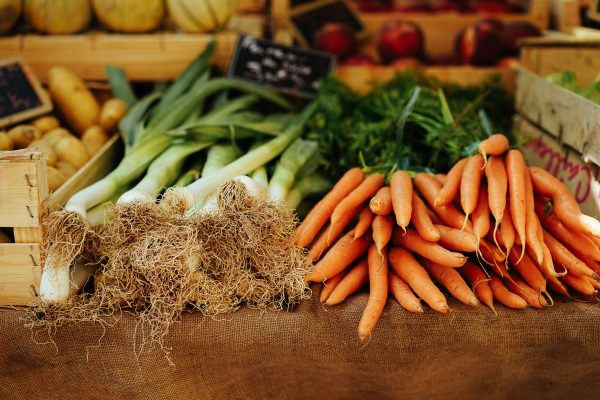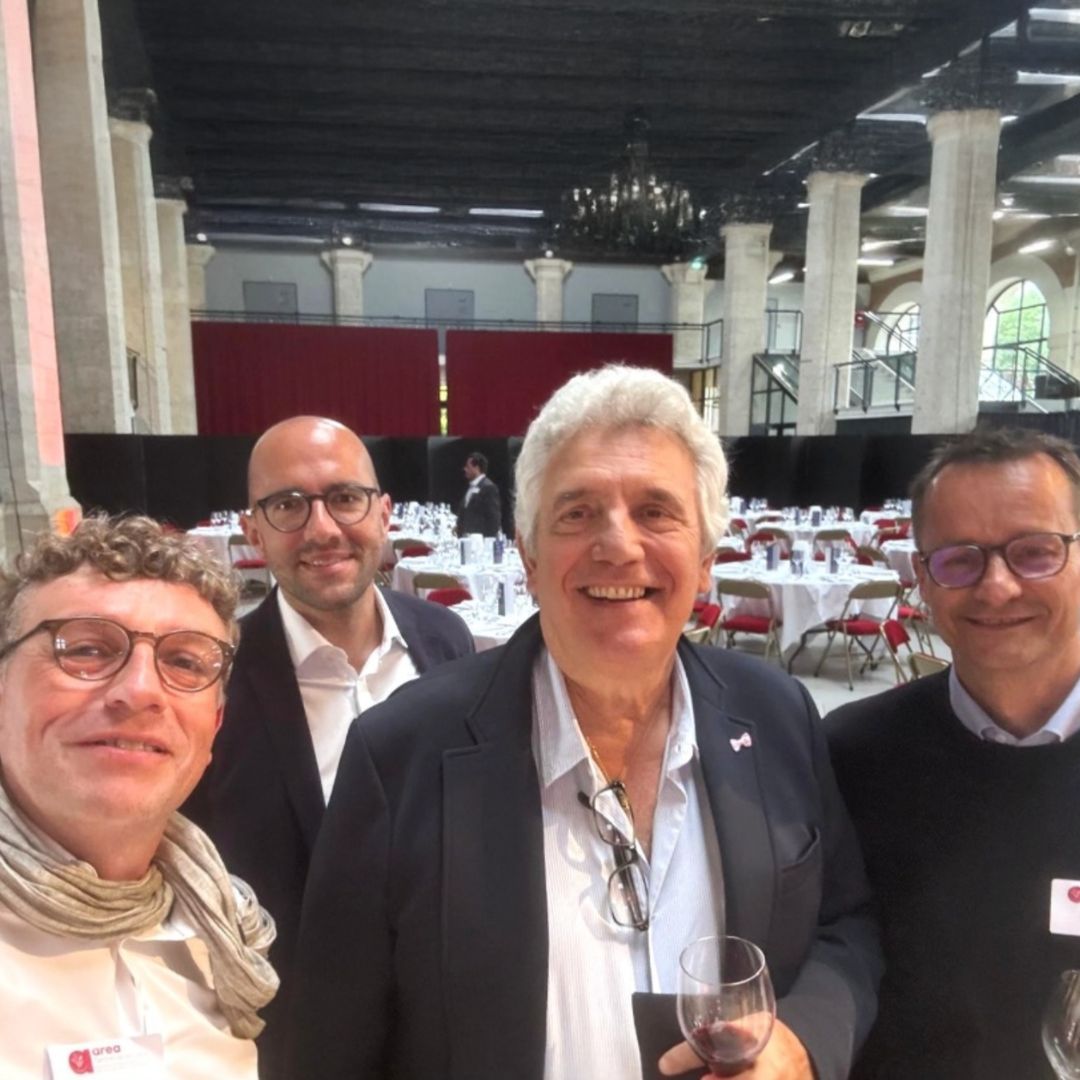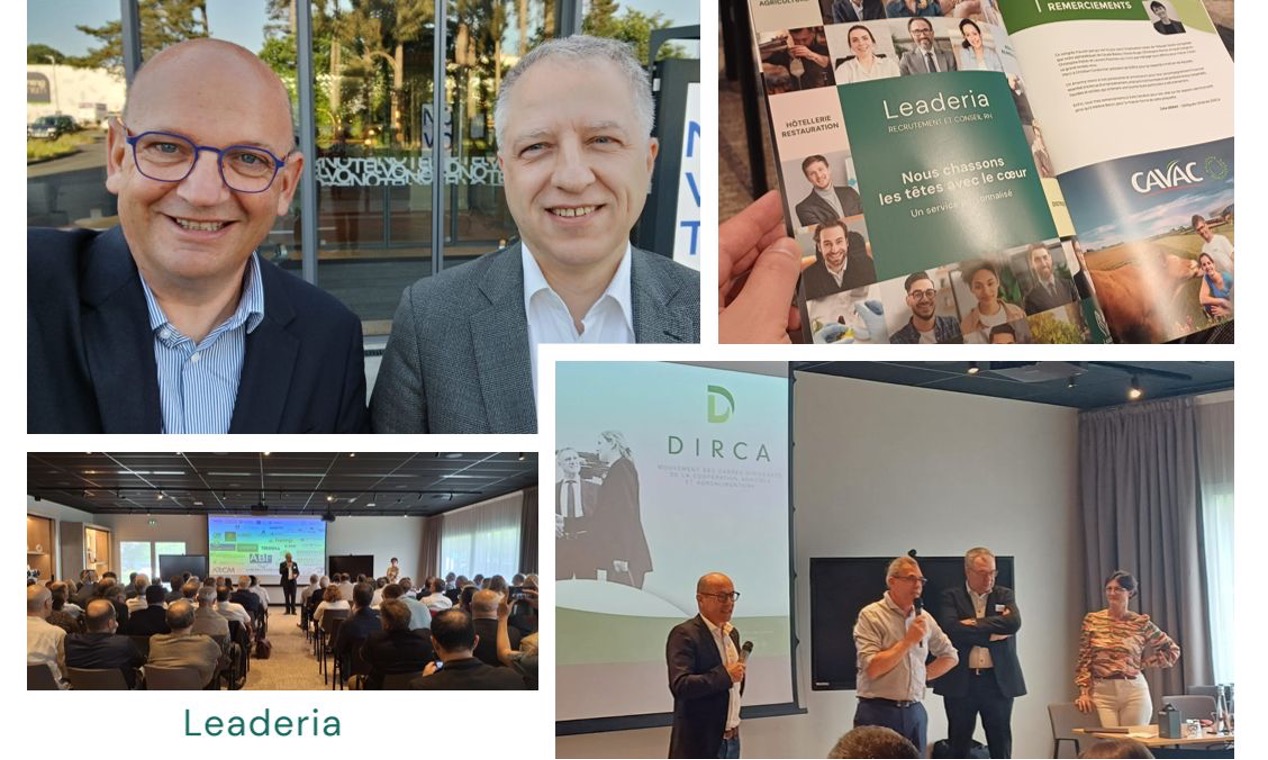
Animated by :
- Alain SAVARY (Iridos Consulting, Ex-CEO Axema)
- Philippe CARASTAMATIS (Head of the Agricultural Division – Leaderia)
Participants:
- Alexandra BORDES (John Deere Communications Manager)
- Philippe CARRE (Ex-CEO Maïsadour Group)
- Hubert DUNANT (Director of Transformation and Strategy, Axereal)
- Pierre-Olivier ERIC (Ex CEO Sofragrain)
- Jean-Michel JUILLET (Digital Marketing Director France Patàpain)
- Ludovic PELLETIER (CEO Krone France)
Food sovereignty is probably the deepest foundation of humanity and which has reappeared in human memory on the occasion of this COVID health crisis, in the form of this fear, which has become fear, of not being able to feed.
In France, it found a reinforced legal existence in the promulgation on August 22, 2021 of the Climate and Resilience law, which devoted numerous debates and several articles of law to it. In this, it reaffirmed the content of Article L. 1 of the Rural Code, which provides that policies in favor of agriculture and food are intended “to safeguard and, for the sectors most at risk, to regain France’s food sovereignty and to promote France’s food independence internationally, by preserving its agricultural model as well as the quality and safety of its food and by protecting farmers from unfair competition from imported products from production systems that do not comply with the standards imposed by European regulations”
On the international scene, this notion of food sovereignty had already appeared with the declaration of the international movement Via Campesina. This movement took advantage of the showcase offered by the FAO (Food and Agriculture Organization of the United Nations) at the 1996 World Food Summit, to bring out this notion in the international debate: “Food sovereignty is the right of each country to maintain and develop its own capacity to produce its staple food, while respecting the diversity of crops and products. »
More pragmatically, it is now transformed into economic and environmental and therefore societal and political issues. Admittedly, France still remains an important agricultural and agri-food power and its overall trade balance is positive. According to a report by the Senate’s Economic Affairs Committee, published in 2019, France imports the equivalent of 20% of its overall food needs. Even if there are still sectors with a positive balance such as those of wines and spirits, cereals, dairy products, live animals. For several decades, France has been a net importer of its food needs in fruit, vegetables, fish, poultry and pork. This reconquest of food autonomy is becoming a real issue of cost and environmental competitiveness between France and third countries.
Causes and triggers
Over the past fifteen years, another vision of consumers has emerged with respect to respect for the environment. Restaurant owners receive contradictory injunctions: customers want better quality products (products without pesticides), and at the same time affordable prices (around 30 to 40% of customers).
The cost of labor in France is a brake (compared to Spain in particular), and the cost of labor is increasingly high, with the arrival today of workers from South America ( vs Polish workers 25 years ago).
In addition, the government excessively favors mass distribution, which tends to concentrate its players.
Sovereignty synonymous with a form of return to a certain protectionism?
In France, it is necessary to slow down international flows (international transport also having an impact on the environment), to restore the competitiveness of French agriculture by being more agile. Agricultural jobs cannot be relocated. Restoring sovereignty means discussing competitiveness again, which is a very complex subject on several levels.
This is to be modulated according to the region and the productions: the producers of the Comté sector manage to value their product well and to live decently from it. France is the 2nd largest agricultural power in the world, knows how to sell quality at its fair price (cognac, wine sector).
Other products are experiencing more difficulties, such as chicken with supply problems: today 45% of chicken is imported, compared to 5% in 1980. The French government has the obligation to mention the origin of the meat is clearly a plus. There is no such obligation in processed products.
More broadly, it is complicated for a farmer to know how to direct his production tool, what investments with a dual demand for quality and price. The individual farmer does not know where to go, the agricultural unions do not guide them.
Farmers are segmented, cooperatives are doing a lot of things: low-carbon pilots, zero-pesticide pilots, have an internal training issue, which is the biggest challenge.
Solutions – 3 levels of action:
1/ Transformation of the sector – sharing of value with major distributors
Farmers must be oriented towards these transitions (harvests that work best), return to a territorial, parcel scale, with a diversity of supply adapted to each territory, and thus adapt the supply to the inequality of the territory and to the problems climatic.
On the issue of value sharing, there is a role for GMS distributors to ensure that the focus is not only on price and problems of access to products. Questions arise about the sincerity of the speech. We must also talk about quality, not just purchasing power.
The Egalim law is a sensible tool to share part of the value, that was not the case. The government needs to balance things out as well.
It would be necessary to lighten the regulatory constraints, to bring the mass distribution, which is almost anti-citizen, into line, and to give farmers the possibility of resisting this final link.
At the level of the public authorities: there is the double question of harmonization at European level and agricultural treatment, we must not shoot ourselves in the foot.
2/ Technological solutions
Manufacturers of agricultural machinery develop tools that allow intense work, and also continue to offer at the same time other equipment that makes it possible to respond to more traditional agriculture.
They also offer solutions to optimize the use of inputs; precision farming systems save money – and respect the environment – by being able to spray to the exact nozzle, for example.
3/ Pedagogy – made in France is an asset for customers
You have to keep production issues in mind. If it goes badly, the French agricultural sector disappears. We have to share our ideas with as many people as possible and promote made in France, highlighting the quality of the products.
On the issue of team training, there is a lot of communication to do with customers.
These articles might interest you

We Almost Played Handball with Claude Onesta
Leadership and Performance: What Companies Can Learn from Elite Sports At the AREA Centre-Val de Loire Gala, Claude Onesta, former head coach of the French handball team, delivered an inspiring and practical management lesson by blending his elite sports experience with business challenges. Aurélien VÉTAULT and Louis-Simon FAURE were present to hear a […]

We visited… The DIRCA congress in Angers
Leading Through Uncertainty: Key Takeaways from the DIRCA Annual Congress As agricultural and agri-food cooperatives face a series of profound changes — environmental transitions, regulatory pressures, and technological upheaval — the question of leadership has never been more central. The 2025 DIRCA Congress, the annual gathering of senior executives from the agricultural and agri-food cooperative […]

Interim management: when experience meets AI
From the ground to the table, AI will have taken just a few months to establish itself at every level of the value chain and reshuffle the cards. AI is optimising logistics, reducing waste and streamlining customer paths. The key role of interim management But while […]